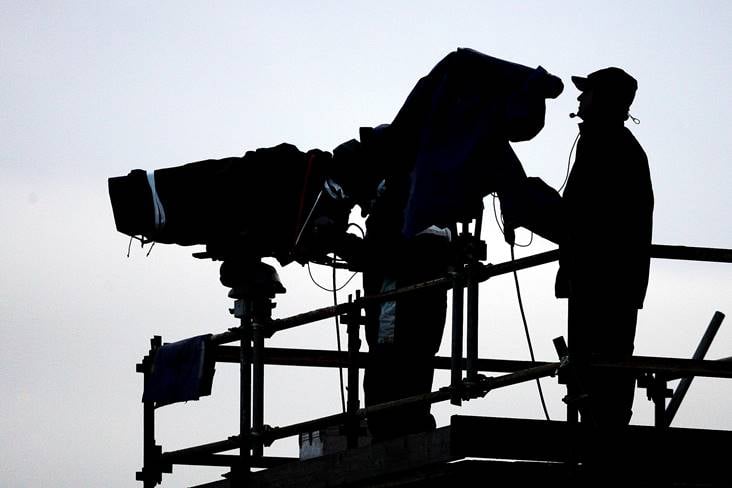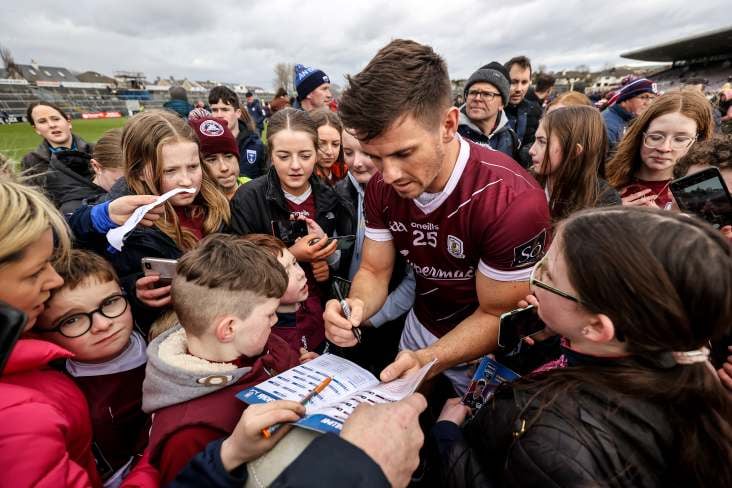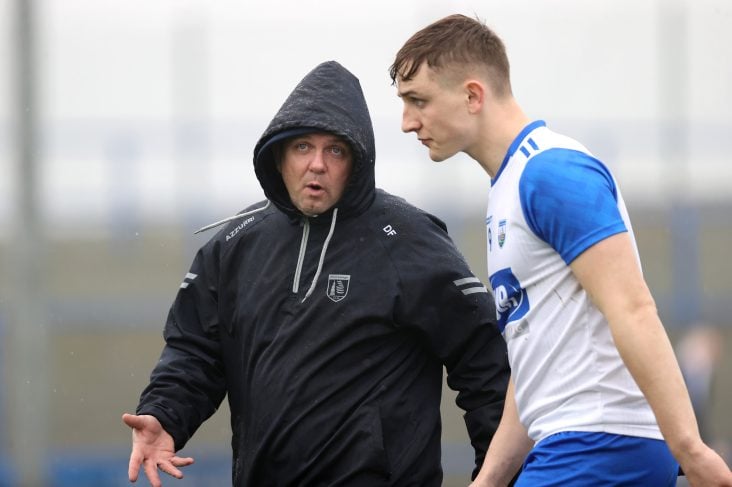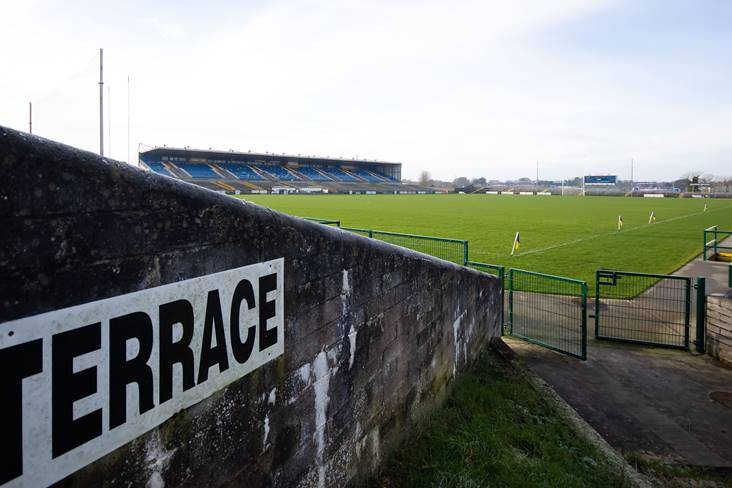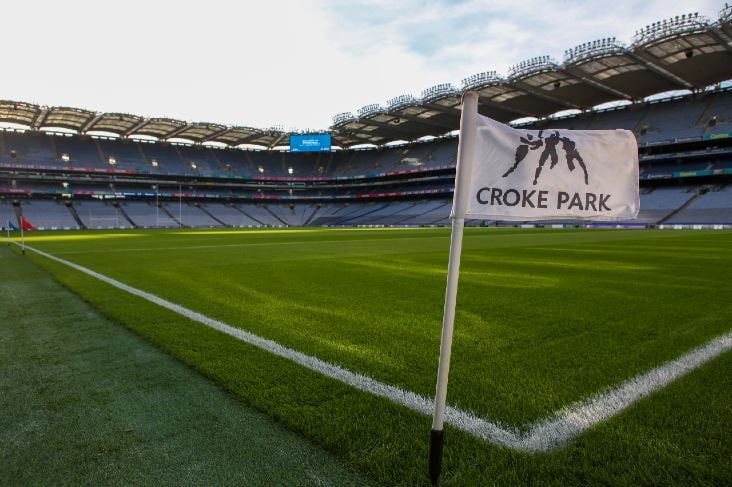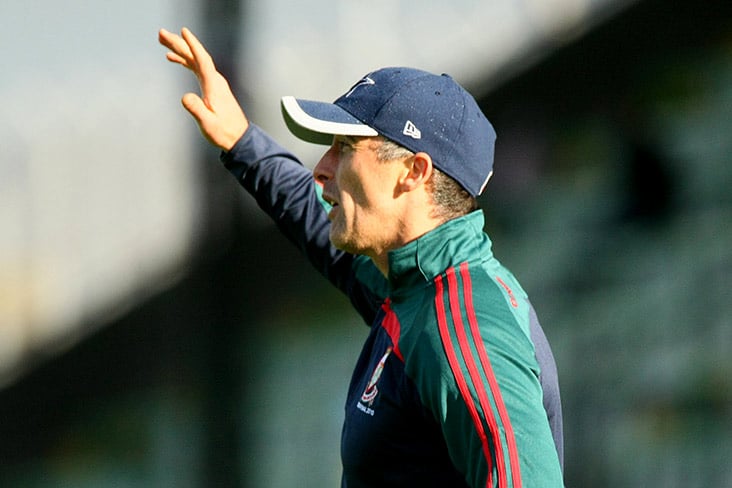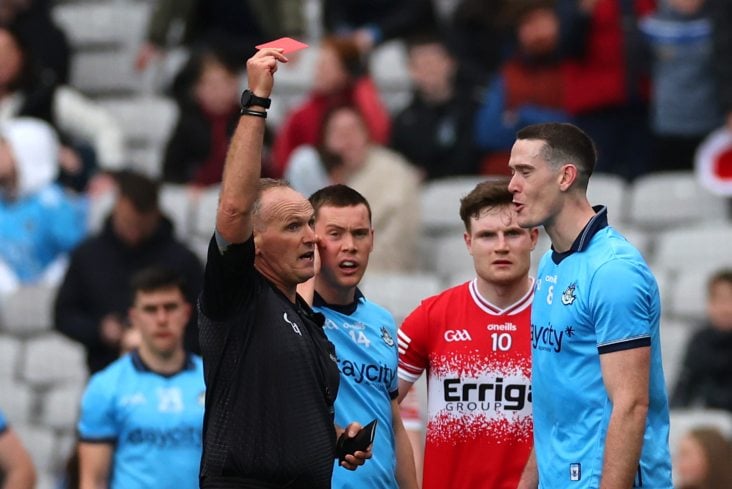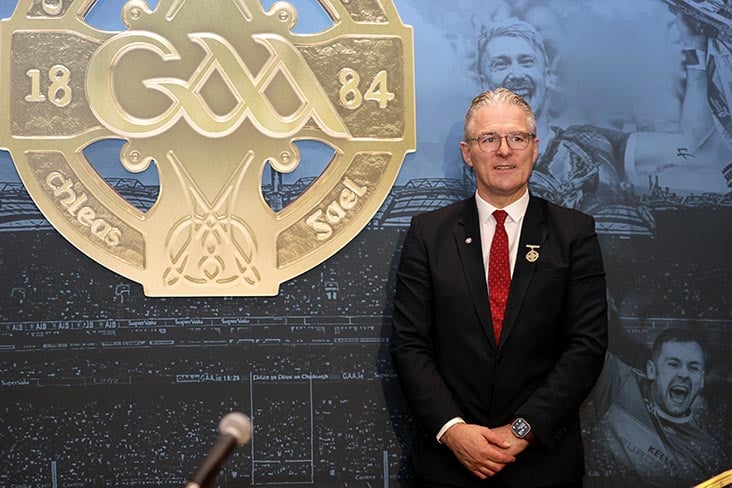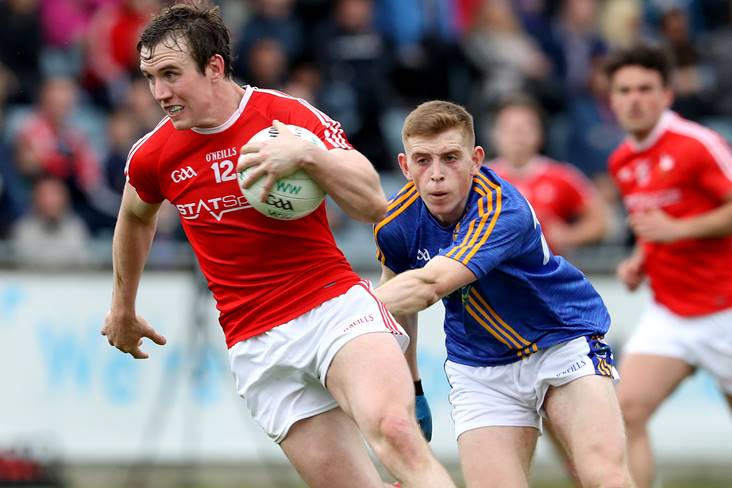Middle man
November 27, 2010Shane Breslin: One of the things you often hear at games is 'Who'd be a ref?' Can you answer that one?
David Coldrick: Well, how I got involved in the first place, I was playing minor level in the county and like most players I felt that referees were the reason we didn't win as many games as we should have. Unlike most players, I suppose, I decided that this can't be that hard, and I tried it myself. I took it on at U13 and U15 level for the two local cubs, Moynalvey and Dunshaughlin-St Martin's. I soon realized that referees weren't the reason behind some of our losses but rather it was my lack of understanding of the rules that was the problem. At that early stage I wouldn't have been thinking of going the whole way in refereeing but given the shortage of referees then, which is still the same case today, the County Board soon heard there was a new young referee on the scene, got in touch with me and it sort of spiralled from there. In terms of thinking it couldn't be that hard, I soon found out that even with a full knowledge of the rules, it wasn't as easy as I thought it would be.
SB: In what way?
DC: At the start my thinking was that there are a set of rules laid out and it's all about following the rules, probably coupled with having a good level of fitness - both should get you a long way and there's no doubt it does but it's not that simple. A referee has to make hundreds of split second decisions in every match he officiates in - foul, no foul, advantage, etc. A referee, like any player or manager, is not infallible. We make mistakes but we try to ensure we get the big decisions right - the scores, penalties, yellow & red cards. In my opinion, one area of difficulty for a gaelic football referee can be the tackle - different referees will interpret the tackle different ways because it's not as clearly defined as the majority of our other playing rules.
SB: I would suggest that if you did a straw poll in the crowd at a big game in Croke Park, many people would not be able to tell you exactly what you're allowed to do when it comes to the tackle. You often hear people shouting 'shoulder to shoulder', 'two-hand tackle', 'one-hand tackle'. So what is a legal tackle?
DC: In one sense maybe it's not or shouldn't be difficult. If you look at the rulebook, the tackle must be open handed and on the ball. I know you hear things like 'two hands', but it doesn't say anything about one hand or two hands in the rule book. The problem for a referee is, that when you have three or four people tackling, are all hands on the ball? The tackle doesn't specifically have to be one-on-one but if you have two-on-one or three-on-one, then it makes it very difficult (but not impossible) for all the tacklers to be attempting to play the ball. So the line between playing the ball and playing the man is a difficult one to call. I think the key thing for a referee in these cases is for your fitness to be of a high enough standard that you are able to keep up with the play and get your positioning right to make those difficult calls regarding the tackle.
SB: You've said that the reason you feel you were fast-tracked through the system was the shortage of referees, and that that's still the case. Could there be more done to incentivise people to become referees, especially former players who have so much experience and could have a lot to offer?
DC: The key problem in the GAA from a refereeing point of view, certainly beginning at club level, is, unfortunately, the abuse that referees get. Anyone who might be considering taking up refereeing can probably see this and that turns them off. I believe that new, up and coming referees should be given a mentor during the first 2-3 years of their refereeing career. This is usually the timeframe we tend to lose new referees in the system. The mentor should be a senior referee in the county who's available to talk through any issues the new referee might have as he's trying to move up the first few rungs of the ladder. The mentor could also try to go to some of the new referee's games to give him some helpful tips or advice based on the experiences he's had in his own career through the years. For me, when I really got heavily involved in refereeing, there was no more incentive needed - similar to any player - than the chance to referee in Croke Park on the 3rd Sunday in September. The system is there for club referees to make their way from club referee, to provincial, to national referee over time but you must be both patient & ambitious to do so.
SB: The problem of referee abuse is endemic in every county in the country, and if you pick up some of the emigrant newspapers it's definitely there abroad too. What do you think when you turn on the television or go to a rugby match and see the absolute respect that referees get?
DC: You would be envious, yeah. Watching rugby, it certainly comes across that players have such high respect, or show such high respect, for referees. It's something that's there since they started in rugby, all the way from juvenile level right the way through to playing for their country. Having said that, you turn on a soccer match and you get the other end of the spectrum. There are ongoing initiatives at county & inter-county level which are trying to reduce the level of abuse referees are faced with in gaelic games but it's going to take time I'm afraid. There is greater respect at inter-county level and the more young club players see of that, hopefully in time they'll be influenced by it. All referees want is mutual respect, hence the 'give respect, get respect' initiative launched by Croke Park earlier this year.
SB: When it comes to rule changes, do you think it would be better for a joint taskforce involving players, managers, referees to come up with possible rule changes every five years, and only then would they go to Congress?
DC: That's the way it has been, and I've been involved with two committees over the last few years which involved all of those stakeholders, and we came up with a set of proposals in both cases. If Congress votes them down after that, then so be it. That's how our association works. But this year did leave referees quite exposed on the new hand pass rule given that neither referees nor players got to trial it and get used to it before the championship started. I do believe that untried, untested rules shouldn't be adopted in this way.
SB: You've been heavily involved in International Rules over the last few years. Do you see it as a game with a future?
DC: I've been involved in both the good and the bad of International Rules. I was the Irish referee for the 2nd International Rules test in Croke Park in 2006, when I felt that the game as it was played then had no future, and I wouldn't want to be involved in anything like that in the future. A lot of hard work has gone on in the few years since then to bring it back from the brink. Some important rule changes and clearer, tougher disciplinary measures were introduced which brought it back to being a game of football. In Australia in 2008 and in Ireland this year, it was about football, and I'd have really good time for it when it's played that way. It's an extremely fast game, which combines many of the skills of both Gaelic football and Australian Rules football. It also gives Gaelic footballers a chance to represent their country which I know is seen as an honour by all of those who are lucky enough to be involved.
SB: The 'two referee' system has worked well in International Rules. In the GAA, referees are often seen as being 'alone against the world' when an incident arises. Would you be in favour of having two refs in our games?
DC: Personally I wouldn't be in favour of it. If you're fit enough the size of the pitch shouldn't be a problem. Fitness is key - referees are maintaining and increasing their level of fitness, and can continue to do that, and if you combine that with four umpires & two linesmen, I believe we have enough officials involved in our games at the present time.
SB: Is there a drawback to two referees, or just no need for it in Gaelic games?
DC: I don't think there's a need for it, but I do believe that we should look at extending the powers of linesmen & umpires in our games, particularly linesmen. At inter-county level - and at certain games at club level - linesmen are trained & certified referees, therefore they should be capable of calling instances of 'technical' fouls to the referee's attention in certain, specified instances. I think the bigger issue in our game, from a refereeing point of view, is inconsistency among referees and introducing two referees to a game doesn't deal with this issue. Achieving consistency is not an easy thing to do, but the best way to attempt to do it is to start at the top, and the creation of a Championship panel in both senior inter-county football and hurling this year means that there's a much smaller panel of officials to train, coach & monitor through the championship season. Croke Park set up monthly seminars and the football panel (similar for hurling) would have gone through multiple video clips of their performances, decisions questioned & tested within the group, and we would only move forward when all football referees were in agreement on the correct course of action in each case. It's much easier to do this initially with a small group of top referees and only when we achieve it there, to move this through all refereeing levels in the association. It will take time though.
SB: When you're taking charge of a big match, like the 2010 All-Ireland final, do you ever really enjoy the occasion? Or are you so watchful of everything that's going on that it's something you can only enjoy on reflection?
DC: It's just that, you can only enjoy it on reflection. You are too closely involved in the game, and you do have to be thinking all the time so it's as mentally draining as it is physically. In certain cases, you might not even have a real idea of how good or bad the game has been, but if you can come off the field and the game has gone well for you, there's no better satisfaction than that as a referee.
SB: The 2010 year was an excellent one for you personally. Are you looking forward to 2011?
DC: 2010 has been a very good year for me, my umpires & my family. It's great to be able to say that you've refereed two All-Ireland senior football finals but like any referee will tell you, you're only as good as your last game. I'll get back into training in December for our pre-season National League fitness test in early January (!) and I'll hope to make it onto next year's championship panel from there. That's where every referee wants to be and that's what I'll be aiming for again in 2011.
***
David Coldrick is Head of the Retail Actuarial Valuations Department in Irish Life. He joined the company in 1997. Tweet
